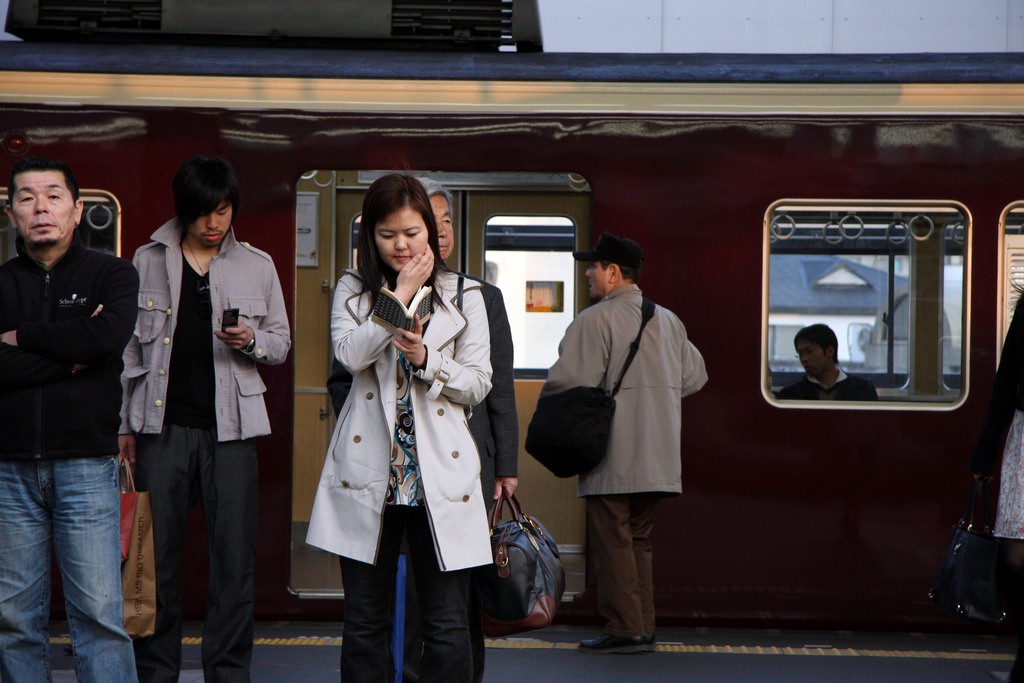This week, the RNC opens in Cleveland, Turkey is in political turmoil, France reels in the aftermath of a terrible terrorist attack, and more police officers were shot and killed in the United States. Here’s what we’re reading about some of these events, and more.
‘Never Trump plots last stand at Cleveland convention‘ (Politico)
As the RNC faces down the reality that Donald Trump is about to become their nominee, some are still holding out hope that things will go differently.
The chances of success are slim. Trump’s allies at the convention — the Republican National Committee leadership and his campaign whip team — proved during Thursday’s Rules Committee meeting that advocates for stopping Trump are fewer than anticipated. And Trump’s allies will be out in force on the convention floor to keep any wavering delegates on their side. They also expect to have a friend in the convention chairman, House Speaker Paul Ryan, who will make all rulings on proceedings and decide whether to recognize anti-Trump delegates.
‘Erdoğan purge sparks fears of wider crackdown on political opponents‘ (The Guardian)
Turkey is in a state of chaos, and civil rights appears to be the first victim. Will Turks be safe in the coming days?
Elsewhere in Turkey, some argued that the crackdown was expanding far beyond its acceptable remit. Among Turkish journalists, who were already the subject of a backlash prior to the coup attempt, there were rumours of an imminent series of arrests. At least one arrest warrant was formally issued — for Haberdar’s Ankara correspondent, Arzu Yıldız.
‘City Bordering Ferguson Will Pay Millions To People It Jailed Because They Were Poor‘ (Think Progress)
Modern-day debtors prisons are a growing problem in the United States, with many targeting low-income people of colour — who are more likely to be poor in the first place. This relatively small victory could pave the way for more substantive change.
Once in jail, the conditions they endured were ‘grotesque,’ as the lawsuit described. Plaintiffs reported the cells were covered with feces, blood, mold, mucus, and trash and the single toilet was not kept clean by the city. The lawsuit claimed the detainees were kept in the same clothes for days and weeks without access to laundry and were also denied toothbrushes, toothpaste, and soap. Women were allegedly not given adequate menstrual hygiene products and the lack of trash removal sometimes forced them to leave used napkins on the cell floor. Inmates were denied medical care and prescription medication, and were also provided food lacking in adequate nutrition.
‘The Story of Ahmed and Alin: Syrian Orphans Trapped in Turkey‘ (Der Spiegel)
What happens to the child refugees who can’t manage to make it across the border and into Europe? It’s not a pretty picture.
Inside, the smell of sweat hangs in the air. Neon light emanates from the ceiling, casting a bright glow on two dozen tender faces — 19 girls and five boys, all still children. Some prop themselves up on crutches and three are missing a leg. They line up next to each other like soldiers as a man calls out their names, shouting in Arabic, ‘yalla, yalla!’ — ‘hurry up! hurry up!’ — and the children set to work. Alin sits down on a plastic stool at one of the wooden tables lined up in rows. She slides a pillow behind her back, places her left foot on a pedal and grabs a pile of clothes. She takes a black T-shirt, lays it in the machine and begins sewing — first one seam and then two, three, four. By the time it grows dark again upstairs on the streets of this Turkish city on the Mediterranean, it will have been a thousand.
‘Who Benefits From The Tiny House Revolution?‘ (Buzzfeed)
Tiny houses are huge in the US, but they come with their own complicated cultural, social, and political context. This thoughtful longread explores these issues and challenges some of the assumptions underlying the movement.
‘Going tiny’ implies that the person who is moving into a tiny house is doing so to escape their previous life of excess: They are coming from one place and going to another. This has made it, by definition, a middle-class movement, one that eschews identification with people who have lived in ‘tiny’ homes for decades — whether that ‘tiny’ home is a mobile home, an RV, or just a really small apartment. And so the tiny house movement has an inherent privilege built in: Going tiny is a choice. If you’re coming from a more abundant place, in which you could live in a 2,000-square-foot house but you choose to live in 200 square feet, then you can be part of the community. If not, well, you’re just poor.
If you enjoy our work, please consider supporting us with a one time or recurring donation. Hosting commentators from all over the world comes at a cost, and we rely on our readers to help us continue serving up interesting, dynamic, and engaging commentary every week day. To make sure you don’t miss any of that commentary, you can subscribe to our newsletter below — and if you’re interested in writing for us, check out our contributor guidelines.
Photo: Chris Gladis/Creative Commons

